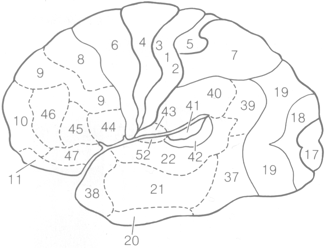Open Thesis Subjects for Students
Neuropsychiatry of Multiple Sclerosis
Patients with multiple sclerosis (MS) have an increased risk of developing depression as compared with healthy subjects and patients with many other chronic neurological conditions. The observation that depressive symptoms can precede the onset of neurological symptoms suggests that depression may be related to early disease-specific processes. Several pathogenic mechanisms have been proposed to explain the etiology of depression in patients with MS. This bachelor thesis should review the current evidence for the contribution of autoimmune and psychosocial factors of depression in MS.
Psychoneuroimmunology of Multiple Sclerosis
The interactions between the immune system and psychological states are both intricate and intriguing. Research at a molecular level has thrown considerable light on the previously ill-defined area of psychoneuroimmunology. This bachelor thesis should explore the psychoneuroimmunology of autoimmune disorders, particularly MS.
Neuropsychology of Pediatric Multiple Sclerosis
While cognitive impairment, major depression, and fatigue have been well documented in adult patients with multiple sclerosis (MS), there is still little information regarding MS-associated cognitive disabilities in infants and adolescents who represent 3 to 5% of all MS cases. Recent studies show that cognitive decline related to MS profoundly interferes with academic success and psychosocial adjustment. Neuropsychological dysfunction affects quality of life more significantly than mere Expanded Disability Status Scale is able to reflect. This bachelor thesis should give an overview of some recent finding concerning cognition in pediatric MS.
Physical Activity and Multiple Sclerosis
Multiple sclerosis (MS) is the most common chronic autoimmune demyelinating and inflammatory disease of the central nervous system, afflicting both the body and mind. The risk of suffering from MS is 2.5-3.5 times greater in females than in males. While there is extant research on fatigue, depression, and cognitive impairment in patients with MS during its clinical course, there is a lack of research focusing on sleep, psychological functioning, and physical activity (PA) at the point of disease onset. This bachelor thesis should give an overview of studies investigating the relation between the aforementioned factors.
Cognitive Disturbances in Early Parkinson`s Disease
Cognitive impairment is highly prevalent and has a severe negative effect on health related and perceived quality of life in Parkinson's disease (PD). It is now established that 20-40% of patients with PD will develop cognitive deficits early in the disease. Moreover, the risk of developing dementia is six times higher in PD patients than in age-matched controls and it is estimated that 80% of patients will develop dementia after 20 years of the disease. In order to address these symptoms properly it is crucial to identify – very early in the disease course – the patients who are most likely to develop dementia rapidly. Persons who meet criteria for mild cognitive impairment (MCI) exhibit measurable cognitive deficits, but those deficits are not severe enough to interfere significantly with daily life. While the presence of MCI in PD increases the chance of developing dementia, various studies suggest that PD-MCI might consist of distinct subtypes with different pathophysiologies and prognoses. The bachelor thesis should be aimed to review different types of Parkinson`s related MCI.
Stress and Cognition
Extensive behavioural, pharmacological, and neurological research reports stress effects on mammalian cognitive processes. While stress effects on memory quantity have been known for decades, the influence of stress on multiple memory systems and their distinct contributions to the learning process have only recently been described. This bachelor thesis should review recent human studies exploring the effects of stress on memory (quantity and/or quality) and other cognitive domains.
Functional Brain Imaging and Cognition
Functional magnetic resonance imaging (fMRI) provides a powerful way to visualize brain functions and observe brain activity in response to tasks or thoughts. It allows displaying brain damages that can be quantified and linked to neurobehavioral deficits. fMRI can potentially draw a new cartography of brain functional areas, allow us to understand aspects of brain function evolution or even breach the wall into cognition and consciousness. This bachelor thesis should review recent fMRI studies and explore how brain activity relates to behavioural and/or emotional correlates.
